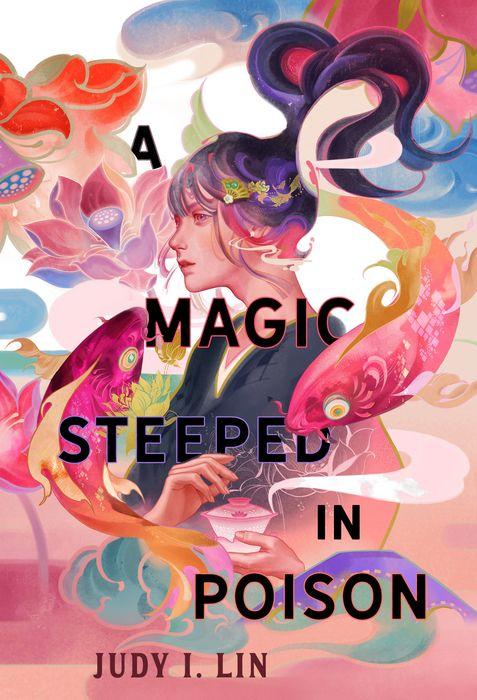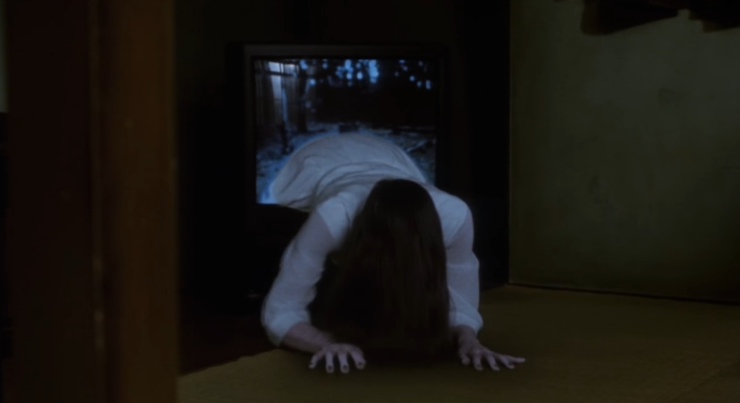One of my earlier childhood memories was watching TV at the babysitter’s apartment. I tuned in each evening to a Twilight Zone-esque show where each episode featured a story about a strange event. An episode was burned into my memory in particular: it featured a demon that haunted an outhouse and would disembowel you if you ever disturbed its rest. I was terrified of toilets, long after that.
Growing up in Taiwan, the paranormal was a part of every day life. There was the annual ghost festival where citizens were warned not to go near bodies of water for fear of drowning by spirits who want to return to the land of the living. During Ghost Month, the streets were lined with tables covered with food to feed the hungry ghosts that were released from hell, to prevent them from devouring you in turn. Variety shows were abundant throughout the year, where the hosts would heatedly debate whether photographs and videos sent in by the viewers were evidence of supernatural phenomenon. Those who were captured in these mediums were usually rumored to have met particularly grisly ends. All of this fueled my fascination with scary stories, as if the more I learned about these legends, it would protect me from suffering the same fate.
My love of horror continued to grow, even after we moved to Canada. Though I enjoyed slashers and monster movies, I still found myself pulled toward East Asian horror. Not only because of the familiar settings or my cultural ties, but because I’m drawn more to stories that provide a creeping sense of unease as we delve deeper into what the darkness is trying to tell us, like in the 2002 Hong Kong movie, The Eye, where a girl begins to see ghostly apparitions after she receives new eyes. We slowly uncover what really happened to the donor and wonder whether she is doomed to the same end. I also love stories where we are constantly reminded that the normality and order of our reality is something we take for granted and can be just as easily disturbed: such as picking up a cursed video tape in the Japanese horror classic Ringu (1998) and experiencing the terror of Sadako climbing through the TV.
That fascination with scary stories found its way into my own writing. The first manuscript I wrote after deciding to seriously pursue the goal of publication was a contemporary horror about a haunted summer camp. While continuing to work on my writing in the years that followed, a recommendation I received frequently as an aspiring author was: “read a lot”. While reading was never an issue, I always felt a thread of guilt when I consumed other forms of media, because that consumption meant a distraction from the discipline required to focus on writing.
I wrote my debut novel A Magic Steeped in Poison, with the classic fantasy storyline in mind. It follows the story of Ning, a commoner, who travels to the capital to attend a magical tea competition with the goal of winning a cure to save her dying sister. She grows more confident in the practice of her magic as she completes the challenges, discovering more about herself in the process.
Buy the Book


A Magic Steeped in Poison
But while working on my second novel, the looming deadline made it difficult to focus on reading. I found myself returning to what always comforted me in the horror genre: how the desire to protect the people we love pushes us past our limits, showing us we are stronger than we ever thought possible. Just like a once absentee father’s dedication to save his daughter from flesh-eating zombies in the Korean action horror film Train to Busan (2016) and the bond that develops between the survivors as they try to help one another. I realized the reason why East Asian horror stories resonate with me so much is because the stories often revolve around relationships. Often times the evil is unknowable and unexplainable, its purpose is to test those bonds and show how strong or how fragile our connections with one another are.
In A Venom Dark and Sweet, Ning has to face off against a monstrous being that has the ability to shape and feast on her nightmares. I knew that surviving the competition was only the beginning for her, and she must face even more dire challenges that threatened not only her family but her very existence. While writing this challenging sequel, I stopped reading novels and devoured other forms of storytelling instead as inspiration. I keep returning to the idea that horror shows us the extremes of what we imagine we are able to endure for the people we love. The various forms of horror media I read or watched allowed me to push past the darkness in my story along with my heroine, to drive her to despair, yes, but also to confront the terror head on in order to save those she has grown to care for.
With Taiwan being a former Japanese colony, I read a lot of Japanese manga while growing up, and Venom was especially inspired by the works of Junji Ito. One significant source of inspiration was Gyo, wherein a couple faces off against monsters that emerge from the sea, powered by a terrible stench. Ito is a master of body horror and truly disturbing images that involve bodies contorting, blending, mutating in horrible, impossible ways. Some of that imagery definitely made its way into my story, and I channeled that sense of stomach-turning revulsion in describing my monsters, as well as the fear of losing ourselves to that monstrousness.
The temptation of maintaining power, no matter the cost, was present in the South Korean period drama Kingdom. The crown prince must survive a zombie plague while investigating what happened to his father, and I pulled into my story the sense of dread and building urgency as the investigation revealed darker and darker secrets. It also helped me shape my villain, ensuring that his motivation, however twisted it may be, was relatable in a way. That is another element I am drawn to in horror: the appeal of the underlying darkness within all of us and the sense that we too may be consumed by it in a moment of weakness.
Echoing the same allure of the dark fantastic, the Chinese film Yin-Yang Master: Dream of Eternity became one of my favorite films during this time. The co-existence of beauty and terror was perfectly captured in the palace aesthetics as monstrous beings lurked in the background of this movie. But throughout the story, the human element was never forgotten and it showed up in various forms of love and obsession. It reminded me to ensure the various relationships I developed in Venom experienced the same impact. Ning’s relationship with her sister remained at the forefront, even while their personalities clashed and they fought with one another, underneath it all there was still love.
However challenging the writing of A Venom Dark and Sweet was, I learned that reading with a critical lens was one method of working on the craft of writing, but not the only way. Other methods were necessary in order to fill my creative well. Immersion in various forms of storytelling, regardless of genre or form, is to be part of my process, no matter how self-indulgent. I learned to embrace my love for the grotesque, the frightful, and the weird, for it brings forth a better story in the end.
Judy I. Lin was born in Taiwan and immigrated to Canada with her family at a young age. She grew up with her nose in a book and loved to escape to imaginary worlds. She now works as an occupational therapist and still spends her nights dreaming up imaginary worlds of her own. She lives on the Canadian prairies with her husband and daughter. A Magic Steeped in Poison is her debut novel.










